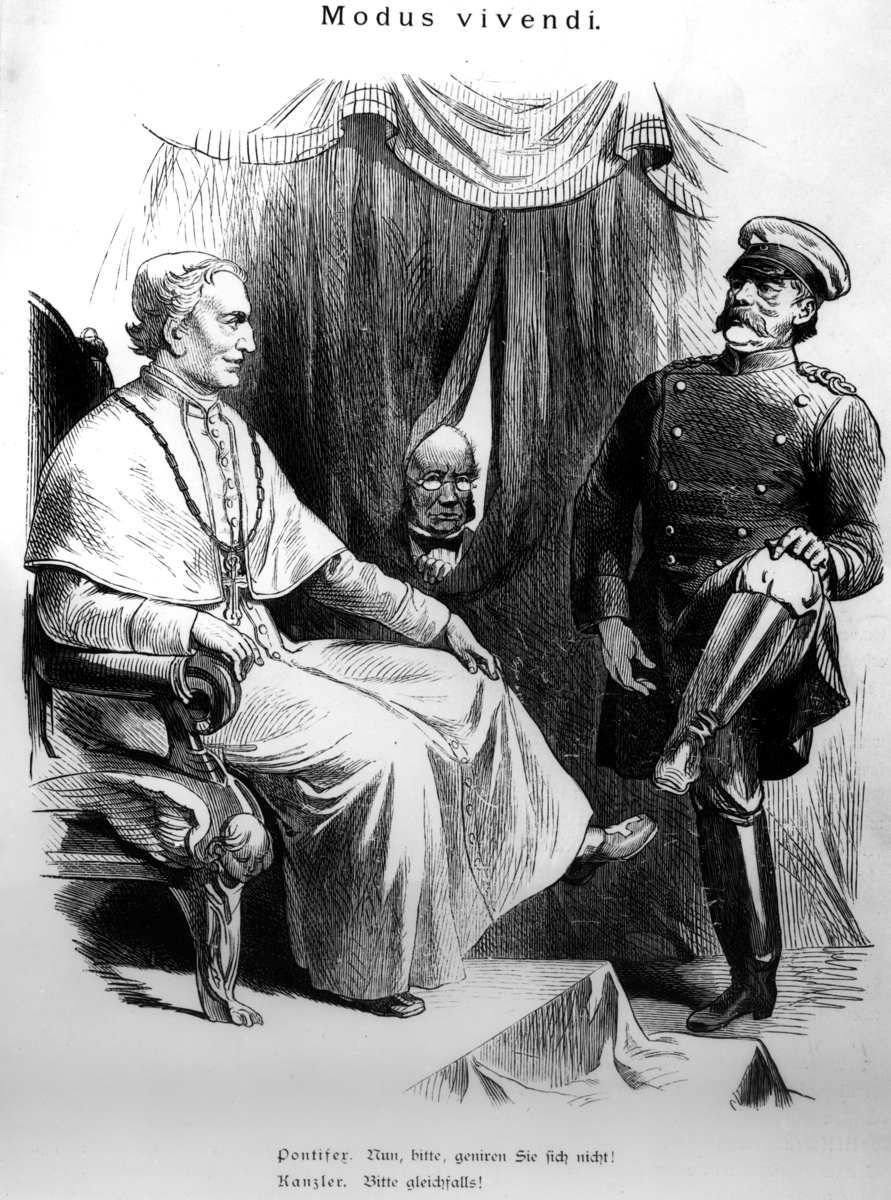Abstract
The caption to this cartoon is slightly ambiguous, as is the German
phrase uttered by the Pope, “geniren Sie sich nicht,” which can be
translated variously as “make yourself at home,” “speak quite frankly,”
or “don’t trouble yourself.” When Bismarck replies that the Pope should
do the same (with a similarly outstretched boot), the point is clear:
neither side will have to abase itself to come to a “modus vivendi”
(that is, a practical compromise that bypasses difficulties) allowing
the Kulturkampf to wind down. The
leader of the Catholic Center Party, Ludwig Windthorst (1812–1891), who
peeks through the curtain, is skeptical about a permanent reconciliation
between church and state: Will it lead to his party’s loss of influence?
The cartoon originally appeared in the satirical magazine
Kladderadatsch in 1878: a time when
political insiders were already aware of Bismarck’s desire to abandon
the Kulturkampf and draw Windthorst’s
party into a future Reichstag majority. At the time, “modus vivendi” was
a widely-understood term referring to an accommodation between church
and state.
